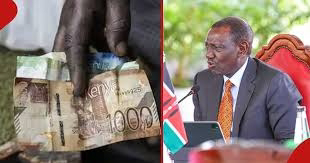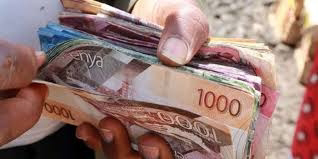In a much-anticipated move, the Kenyan government has unveiled plans to provide monthly financial support to citizens aged 30 and above, offering a much-needed lifeline to many struggling amidst the rising cost of living and food insecurity in the country. This announcement comes as part of President William Ruto's broader initiative to improve the lives of Kenyan citizens, particularly those affected by hunger and economic challenges.
A New Financial Support System
During a press briefing on Tuesday, President Ruto confirmed that starting February 2026, the government will disburse a monthly payment of Ksh 1,500 to Kenyans aged 30 and above. This program aims to provide some financial relief, ensuring that people in this age group have a guaranteed source of income to cover basic needs.
The President expressed his hopes that this initiative would help alleviate some of the financial pressure many Kenyans face daily, particularly with food scarcity being a pressing issue in various regions of the country. "The government is working to make sure that by the end of each month, every Kenyan aged 30 and above will have something in their pocket to smile about," said Ruto.
Future Plans to Increase Support
While the initial payout is set at Ksh 1,500 per month, President Ruto also revealed that his long-term goal is to increase this amount significantly. In his original plan, the president envisioned a monthly payment of Ksh 5,000 for each qualifying Kenyan. However, after further consultations, he decided to scale back the immediate goal to Ksh 1,500 to ensure a sustainable approach. Ruto cautioned that a higher payout might inadvertently discourage self-sufficiency and hard work, potentially fostering dependency on government handouts.
Addressing Hunger and Poverty
This initiative is a response to the widespread food insecurity affecting millions of Kenyans, especially in rural areas. Recent droughts, climate change, and economic disruptions have exacerbated hunger, leaving many households struggling to provide daily meals. The government's decision to introduce financial assistance is aimed at addressing these pressing issues and ensuring that people can afford basic necessities while also supporting local economies.
The Broader Impact on Kenya's Economy
This move is part of a broader set of social welfare reforms that the government is introducing, including plans for universal healthcare coverage and improved public service delivery. By providing direct financial support, the government hopes to stimulate local markets and reduce the strain on families, particularly single-parent households, young people entering the workforce, and elderly citizens.
In the coming years, the government will continue to assess the effectiveness of this initiative, with hopes of gradually increasing the amount of money distributed, depending on the country's economic health and fiscal capacity.
Tags
News


